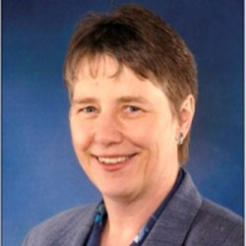Large charities have a responsibility to support small organisations in the current public service delivery climate, says Barnardo's director, Jane Stacey.
Stacey was speaking at a joint event today organised by The Guardian and New Philanthropy Capital.
The event, 'How is the third sector coping with cuts?', explored creative ways in which charities were responding to public spending cuts.
Risks to the future of the mid-sized charity sector, and the importance of large charities supporting smaller, niche organisations in a new outcome-based contract culture, were main talking points.
Steve Bullock, directly-elected Mayor of Lewisham, who spoke at the event from the perspective of local government, said the delivery of public services would be very different in the future, and there was no going back to how things were done before.
Focusing on the rise of payment-by-results type contracts, Bullock said local authorities and partners had to act to make sure larger charities did not dominate this arena:
“It’s going to be very difficult for smaller, local organisations in my borough to participate,” he said. “You’ll see large national organisations having this capacity – which is fine. But I would complain if they did not understand the peculiarities of my borough.
“We must act now to make sure local charities are able to be involved in these contracts early on.”
Large charity umbrellas
Stacey, UK director for children’s services at Barnardo’s, conceded that her charity was not as affected by public spending cuts as smaller organisations.
“We are reasonably protected,” she said.
She continued that the large voluntary sector had a responsibility to act as umbrellas to bring funders and local voluntary sector organisations together.
But she added that as Barnardo’s explored different partnership models such as with private companies or niche small charities this would leave mid-sized organisations exposed. Bullock from Lewisham echoed this sentiment.
Outcome-based finance
Geraldine Blake, chief executive of Community Links, also spoke on how her charity was coping with a new funding environment, with new avenues including social investment models. But she warned that there was a pressing issue in pinning down outcome payments from government:
“Government can say how much they’ll pay for an outcome around employment or NEETs, but can’t for work with a family, for example a child coming in to our centre to play with his mother.”
Dan Corry, chief executive of New Philanthropy Capital, said creating an outcome-based payment model in this area would be a “tough ask":
“If you are expecting a social impact bond on complex families, don’t hold your breath,” he said.
Bullock also said that the ability of local authorities to do complex commissioning was less than it was as these roles had been cut back.








